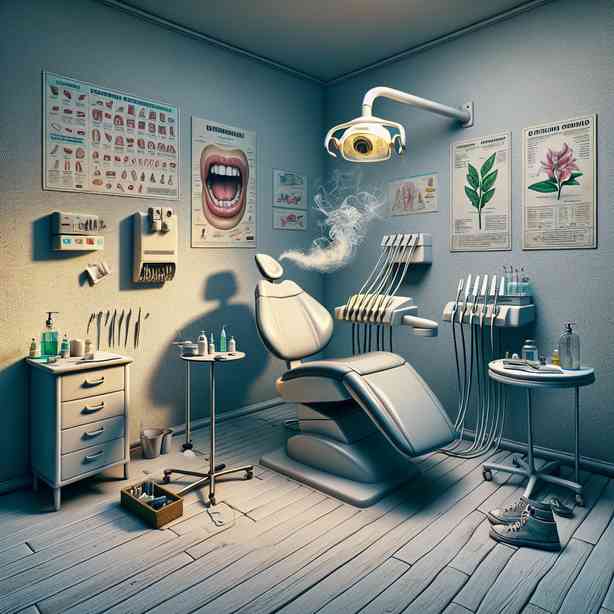
The scent of a dentist’s office is an experience that lingers in our memories long after we’ve walked out the door. This distinctive aroma—often a mix of antiseptics, fresh dental products, and maybe even a hint of stress—can evoke a variety of emotions. For some, it might trigger anxiety, conjuring up memories of drills, needles, and procedures. For others, it can be a reminder of care and health, a fragrant sign that they are taking positive steps towards maintaining their oral hygiene. In this exploration, we will delve into the various facets of this scent, its implications on our perceptions, and how it shapes our experiences in dental care.
One of the primary components of the smell in a dentist’s office is the antiseptic used to maintain cleanliness and hygiene. These powerful disinfectants are designed to eliminate bacteria and ensure that all instruments are sterile. The pungent scent of these chemicals can be a source of discomfort for some patients, as it is often associated with medical procedures. However, it serves an essential purpose—protecting patients from infections and ensuring a safe environment for dental work.
Additionally, the dental materials used during treatment contribute significantly to the overall scent. Composite resins, dental adhesives, and fluoride treatments each have their own unique smells that might remind patients of specific visits. The mix of these aromas can create a sensory experience that is both familiar and intimidating. For example, the sweet smell of fluoride might evoke memories of a routine check-up, while the sharp smell of drilling could be linked to more intensive procedures.
The ambiance of a dentist’s office also plays a crucial role in shaping the experience. The sterile, clinical nature of the environment can be anxiety-inducing for many. Bright lights, white walls, and the sound of dental equipment can heighten the sense of unease when combined with that recognizable scent. However, many modern practices are beginning to shift this paradigm by introducing soothing elements. Gentle music, comfortable seating, and calming scents like lavender or citrus may be incorporated to help reduce anxiety levels. This change not only alters the overall smell of the office but also helps to alleviate the apprehensive feelings that some patients may experience.
Furthermore, the psychological impact of the dental office smell cannot be underestimated. Research has shown that scent plays a significant role in memory and emotional responses. The distinct smell of a dentist’s office can trigger memories and feelings, informing our behavior during visits. Patients who have had negative experiences in the past might find that the smell alone is enough to ignite anxiety, reinforcing the need for a gentle, comforting environment. On the other hand, those with positive associations may feel a sense of calm, knowing that they are taking proactive steps to prioritize their dental health.
For many, the smell of the dentist’s office can become a symbol of routine care. Regular visits to the dentist are crucial for maintaining dental health, and those who prioritize these appointments often develop a sense of familiarity with the environment. Interestingly, this could lead to a form of desensitization, where the scent of the office no longer evokes fear but instead signals a commitment to self-care. Patients who learn to associate dental visits with positive outcomes—such as improved oral health and a bright smile—are likely to approach future appointments with less apprehension.
Moreover, advancements in dental care have led to the development of new materials and techniques that can change the odors associated with dental visits. Odor-neutralizing additives are being incorporated into dental materials, and even the equipment is evolving. Many practices now focus on providing a more soothing experience through aromatherapy and other sensory-enhancing practices, thereby reshaping the traditional dental office smell into something more welcoming. This trend reflects a growing recognition of the importance of patient comfort in dental care.
In conclusion, the smell of a dentist’s office is more than just an odd mix of antiseptics and dental products; it is a complex blend of memories, emotions, and experiences. While it can evoke anxiety for some, as it is intertwined with the often-daunting experience of dental procedures, it can also signify necessary self-care for others. As dental practices continue to evolve, so too will the scents that define them. Embracing a more holistic approach to patient care, which includes attention to the sensory aspects of the office, will help in alleviating fears and creating a more positive experience for all. The next time you step into a dentist’s office, take a moment to recognize the smells around you—they represent not only the dental profession’s commitment to hygiene and care but also your own personal journey toward a healthy smile.


